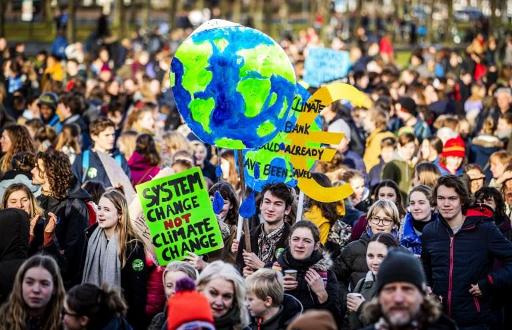The world must speed up its preparations for the "inevitable" consequences of climate change, an adaptation that moreover brings economic opportunities, an international commission pleaded in a report published on Tuesday.
"Adapt now", pleads the study carried out by the 'Global Center on Adaptation', created in 2018 at the initiative of the Netherlands, a country particularly exposed to the consequences of climate change with part of its territory below sea level. 19 other countries are also involved.
The study is led by the former UN secretary-general Ban Ki-moon, Microsoft founder and climate activist Bill Gates, and Kristalina Georgieva, who was approached for becoming head of the IMF.
"A well-led adaptation can bring better growth and development (...) save lives, protect nature and create opportunities", with a "triple dividend" consisting of avoided losses, economic repercussions (reduced risk, improved productivity, innovation) as well as social and environmental benefits, the report considered.
The text lists five areas - early warning systems, infrastructure adaptation, agricultural improvements, protection of mangroves, protection of water resources - the 1,800-billion investment in which would, according to the study, generate "net profits of 7,100 billion."
"Action to slow climate change is promising but not enough. We must invest in a massive effort to adapt ourselves to conditions that are now inevitable: rising temperatures, rising sea levels, stronger storms, unpredictable rainfall," the report summed up.
And if the consequences are global, the populations most affected are the poor, the text warned.
According to this report, unless we adapt, increases in crop yields could drop by 30% by 2050, mainly affecting small farmers.
The number of people going short of water for at least one month of the year could exceed the 3.6 billion it stands at today, increasing to 5 billion by 2050. Rising sea levels could cost 1,000 billion a year, and see more than 100 million people drop below the poverty threshold in developing countries by 2030.
Referring to the recent hurricane Dorian, which notably devastated the Bahamas, Ban Ki-moon made the point during a conference call that the growing number of such phenomena could instil "a sense of inevitability and impotence."
But "it is quite simply not true" and bolstering the adaptation "makes economic sense", can "save lives, protect our communities (...) and build a better future."
"The adaptation is not an alternative to the redoubled efforts (being made) against climate change, but an essential complement," the report added, arguing that without adaptive measures we are exposing ourselves to "an enormous economic and human toll."
"Even if our ambitions are achieved (global warming limited to +2°C), something we are not on the way to doing, the warming that has already occurred will inevitably have an impact," Dominic Molloy, one of the report's authors, stated to AFP, while this world where temperatures have risen +1°C in relation to the pre-industrial era, is already subject to storms, heatwaves and drought.
The Brussels Times

